5 Fun Elephant Facts: Are They The True Secret Environmentalists?
Even though they are these big and majestic animals, they seem so vulnerable and sensitive at the same time. Did you know that elephants are not only fascinating to look at? We actually benefit in so many ways from our pachyderms (= thick-skinned animals).
Did you know elephants are natural environmentalists? Without even knowing it, these eco-friendly mammals are responsible for 35% of natural seed germination. All in a day’s work!

Find out what other talents they have, more fun elephant facts and one not so fun fact right here. Have a kid around? This article also doubles as elephant facts for kids!
Five Fun Facts About Elephants: Eco-Edition
If an elephant herd were writing this article, they would call us on the ele-phone immediately to tell us even more relephant facts; but, enough of our elephant jokes, these scientific findings will have to do for now.
Check these facts about elephants!
Elephant Fact #1: Elephant Poop is Nature’s Biggest Gardener
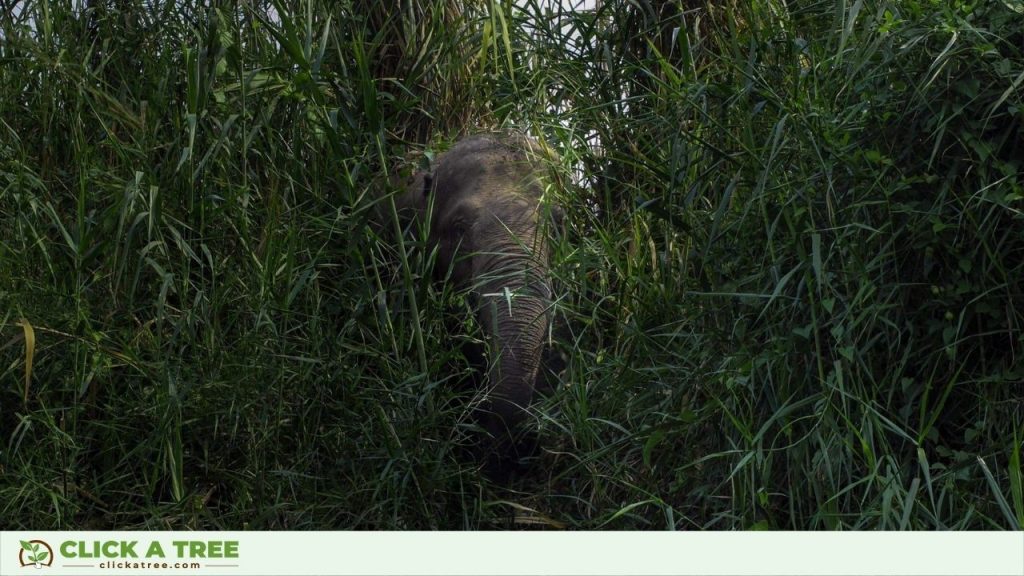
Elephants are migratory animals by nature and move in family parties (I wonder how an elephant family dinner goes, everyone must eat a ton).
As the party traverses the landscape, eating their favorite snacks, they poop out seeds with built-in fertilizer. If there is a lack of elephant poop in the areas, there will also be a lack of diversity. These big mammoths really know how to keep a place looking green, hey?
All this replanting and seed spreading stimulates soil and roots to add to their carbon storage, making the world breathe easier.
Know an elephant lover? Share these fun elephant facts with them.
Elephant Fact #2: They Upcycle Old Forests
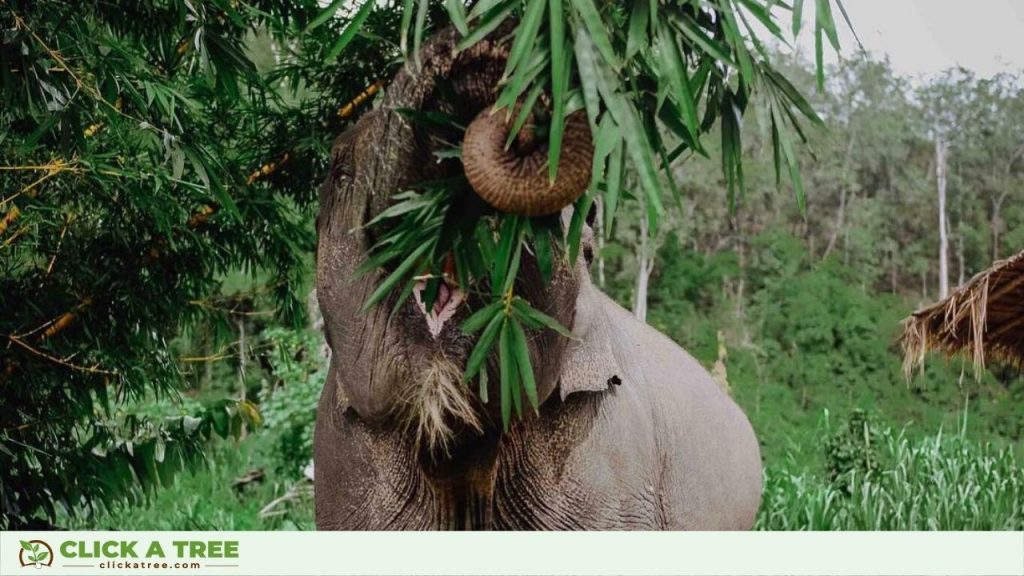
Would you consider yourself a bull in a china shop? You know, you and elephants have something in common.
Although they don’t mean to knock over trees, elephants are just, well, awkward. As they stumble amongst their way, they unintentionally clear habitat space for new life to regrow and soil fertilization.
So, if a tree falls in the forest and there are only elephants around, does it make a sound?
Elephant Fact #3: They’re Natural Excavators
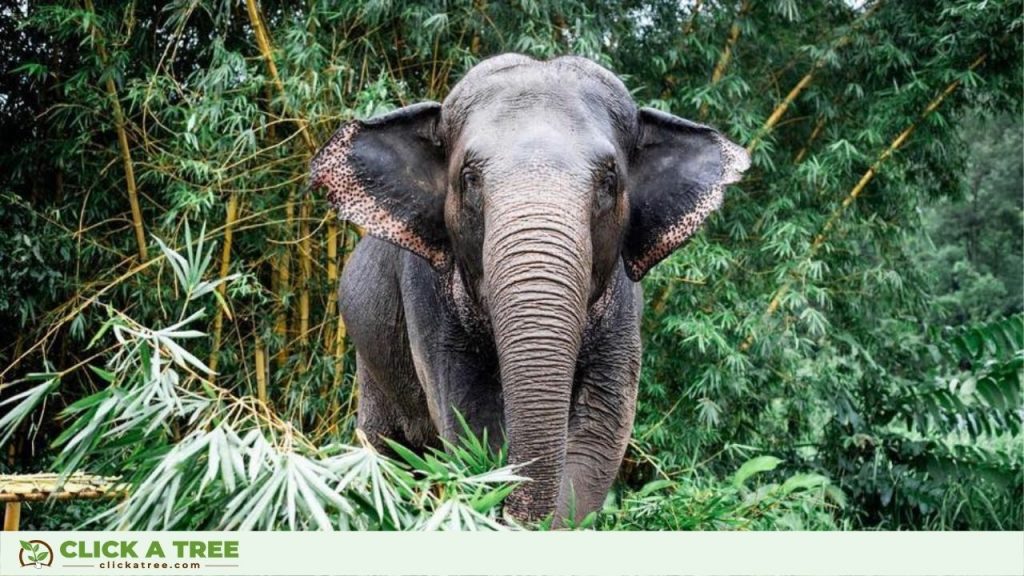
What animal has the strongest sense of smell? You would never guess given their noses are feet long, but the answer is African Elephants!
According to Phys, “Elephants’ sniffers are five times more powerful than people’s noses, twice that of dogs, and even stronger than the previous known record-holder in the animal kingdom: rats.”¹
With this kind of sniffing power, it’s no surprise they can uncover underground water sources during times of need. The safari animals owe them a thank you note for that one.
Elephant Fact #4: They Represent
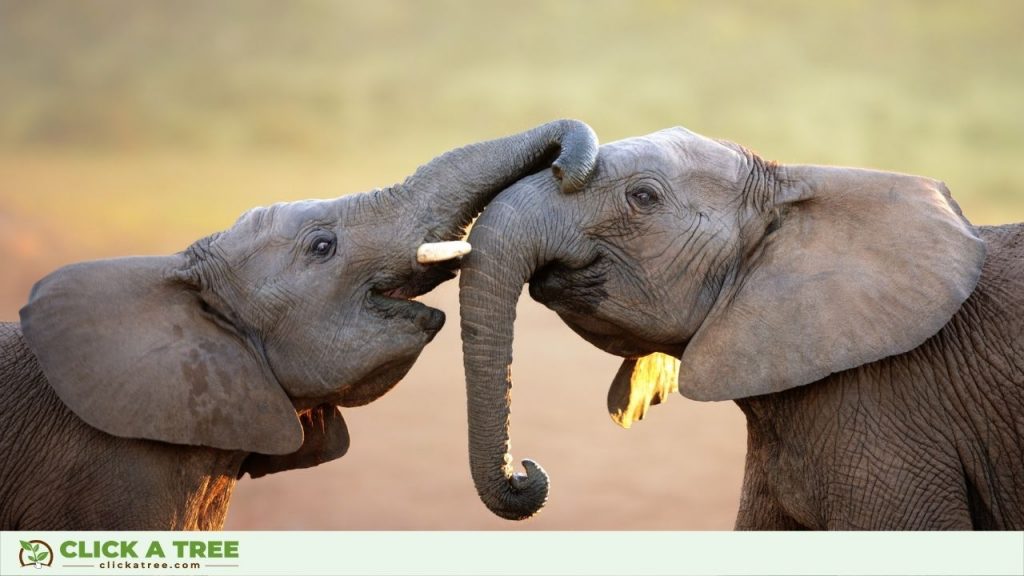
Elephants are some of the smartest animals on this planet, and quite similar to human beings in many ways. They form family structures, teach survival skills, and have complex thinking.
In addition to humanlike traces, they’re a staple of the safari animal kingdom, with many well-known animal protection organizations using their resemblances as logos.
They attract attention and tourism, causing countries to have an added economical advantage to elephant protection.
People storm far and wide to witness their elegance in the wild (protected areas, of course), which helps fund elephant protection initiatives. They stand as a symbol for many animals, big and small.
Do you agree that we need to protect these wonderful animals? Help us create habitat by planting a tree.
Elephant Fact #5: They Teach Us Medically
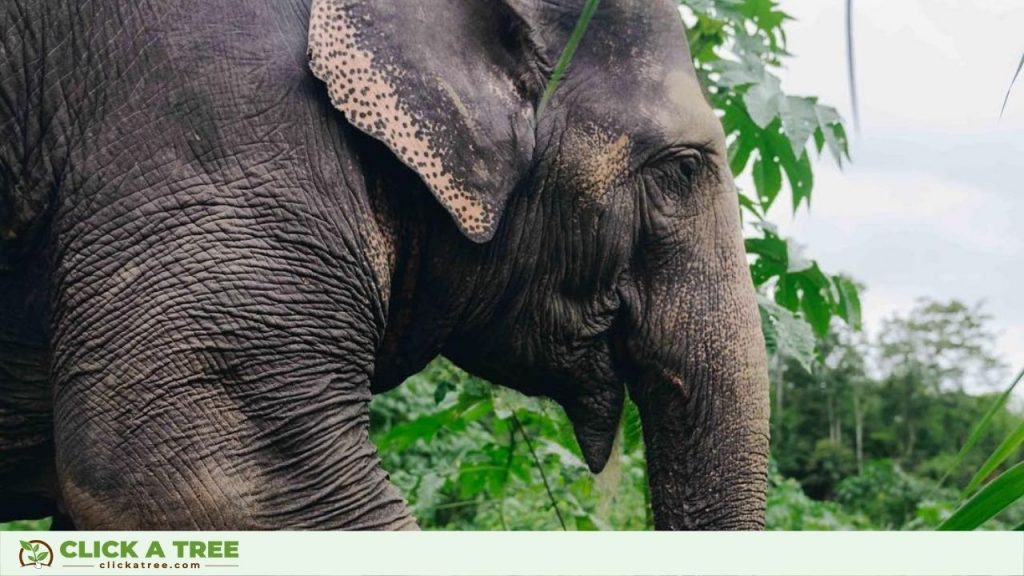
Old age can be a terror, can’t it? Well, let’s hope with this mention that not everyone hops out to start medically examining our tusked friends.
Scientific findings have shown that as similar as elephants are to us, they encounter a lot of the health problems we do when we age (‘Tis a shame to have this in common, sorry elephants). Stanford University is even planning to model hearing aids off of elephants’ hearing.²
But that’s not all, elephants also have a body mechanism referred to as the “extended knee posture,” meaning they will encounter similar joint problems. Add the risk of osteoarthritis and cardiovascular problems in the mix and these big boys need an insurance plan, stat!
Want to laugh some more? Head over to our awesome collection of the funniest elephant jokes and puns.
How did you feel about those elephant facts? You see now how vital these giant family members are to our planet; from reseeding, upcycling, medical discoveries, and cross-species representation- they stand up to the tusk.
And obviously, they also like to have some fun with each other. Play time doesn’t look too different from human kids.
Bonus Elephant Fact: Tell An Asian Elephant From An African Elephant Apart
Imagine you were to wake up in a foreign country and you had to figure out what continent you are on. And the only indicator you see for that is an elephant. Would you be able to tell the Asian Elephant apart from the African elephant?
No? You are not alone. Let’s look at some of the most visible indicators together.
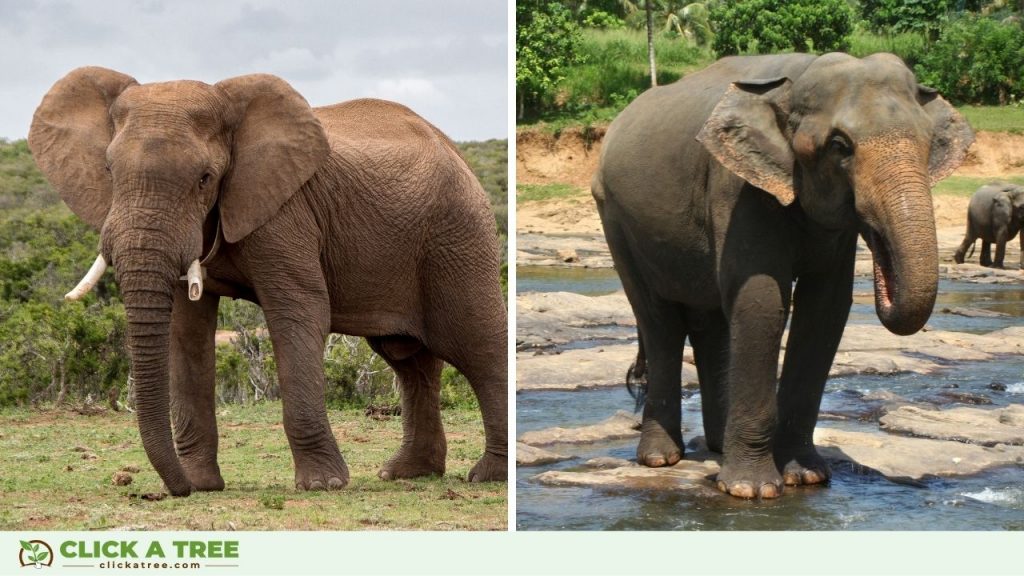
The Not So Fun Elephant Fact
Would you have ever thought that you’re quite similar to these majestic animals? But before we let you go, we need to talk about the only not so fun elephant fact.
What are some of the biggest threats to elephants in the common day?
In terms of elephant protection, poachers are one of the largest menaces, hunting elephants for the illegal ivory trade. Many organizations and countries combat this violent trading culture by hiring law enforcement to stand guard in wildlife sanctuaries or bringing the issue to public knowledge.
Habitat destruction, or furthermore, habitat relocation is still the widest cause of elephant births declining. These mammals are forced into foreign habited areas where it is unsafe for them to raise young, and far away from their natural supply of food and vegetation.
Currently, there are a mere 20,000 to 40,000 Asian elephants, a decrease of 50 percent over the past 75 years. At the beginning of the 20th century, there were more than 100,000 wild elephants in Thailand. Today, there are only 3,000-4,000 left.
These numbers are scarce, but the positive contributions elephants bring to the environment are massive.
Help Us Protect These Beautiful Pachyderms
As mentioned above, most of the decline is linked to habitat destruction, so we started an initiative to create habitat for elephants called “Trees for Tuskers”. To not only raise awareness but play our part in recreating a safe place for our big environmentalists.
It’s a big tusk, so we need all the help we can get! Plant a tree and help us create habitat for tuskers:
Replantation, education, and outreach are the only ways to spark an upswing and protect our beloved elephants.
In Thailand, Click A Tree is planting trees of all species to further elephant lifespans and give their young a chance to grow up in a safe, forested environment. We even check in to make sure the trees planted stand the test of time because we are committed to watching those numbers rise.
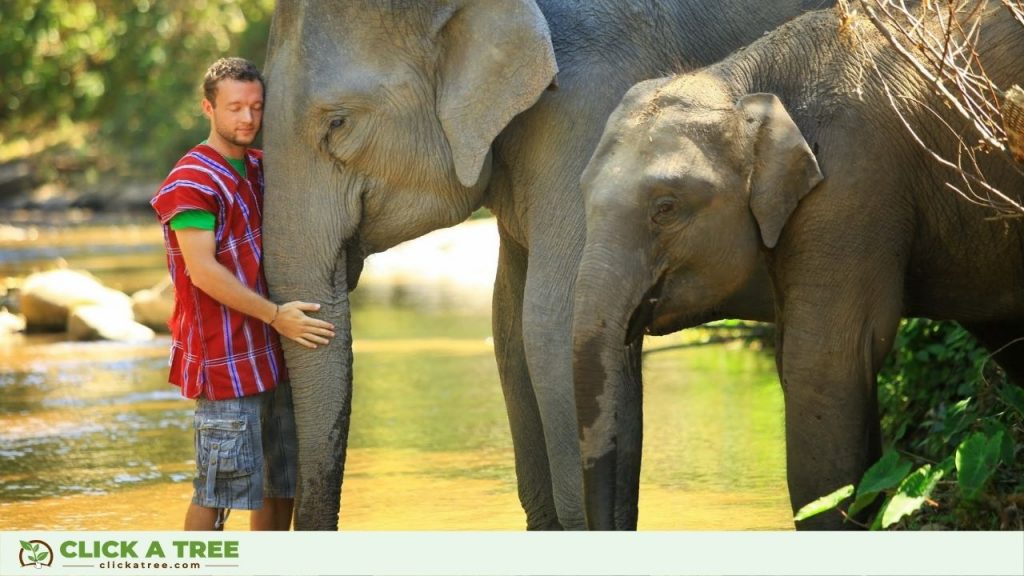
Let’s grow valuable habitat back together for these gentle giants. They deserve it for all they give back to us. Thank you for your support!
Let your friends know about these awesome elephant facts and how we can protect them.
Sources
² https://scopeblog.stanford.edu/2018/07/27/eavesdropping-on-elephants-in-the-name-of-research/